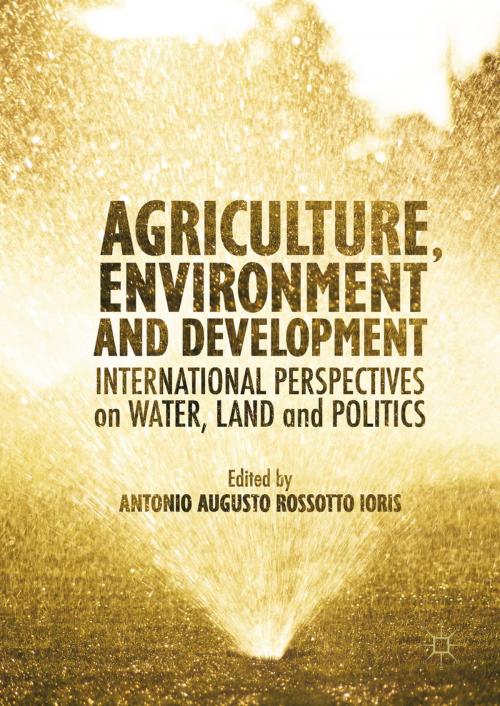Agriculture, Environment and Development
International Perspectives on Water, Land and Politics
Nonfiction, Science & Nature, Technology, Environmental, Social & Cultural Studies, Political Science, Government, Public Policy, Nature| Author: | ISBN: | 9783319322551 | |
| Publisher: | Springer International Publishing | Publication: | August 24, 2016 |
| Imprint: | Palgrave Macmillan | Language: | English |
| Author: | |
| ISBN: | 9783319322551 |
| Publisher: | Springer International Publishing |
| Publication: | August 24, 2016 |
| Imprint: | Palgrave Macmillan |
| Language: | English |
This book deals with past legacies and emerging challenges associated with agriculture production, water and environmental management, and local and national development. It offers a critical interpretation of the tensions associated with the failures of mainstream regulatory regimes and the impacts of global agri-food chains. The various chapters include conceptual and empirical material from research carried out in Brazil, India and Europe. The assessment takes into account the dilemmas faced by farmers, companies, policy-makers and the international community related to growing food demand, water scarcity and environmental degradation. The book also questions most government reactions to those problems that tend to reproduce old, productivist approaches and are normally under the powerful influence of global corporations, mega-supermarkets and investment funds. Its overall message is that the trajectory of agriculture, rural development and environmental management are integral elements of the broader search for justice and novel socio-ecological thinking.
This book deals with past legacies and emerging challenges associated with agriculture production, water and environmental management, and local and national development. It offers a critical interpretation of the tensions associated with the failures of mainstream regulatory regimes and the impacts of global agri-food chains. The various chapters include conceptual and empirical material from research carried out in Brazil, India and Europe. The assessment takes into account the dilemmas faced by farmers, companies, policy-makers and the international community related to growing food demand, water scarcity and environmental degradation. The book also questions most government reactions to those problems that tend to reproduce old, productivist approaches and are normally under the powerful influence of global corporations, mega-supermarkets and investment funds. Its overall message is that the trajectory of agriculture, rural development and environmental management are integral elements of the broader search for justice and novel socio-ecological thinking.















